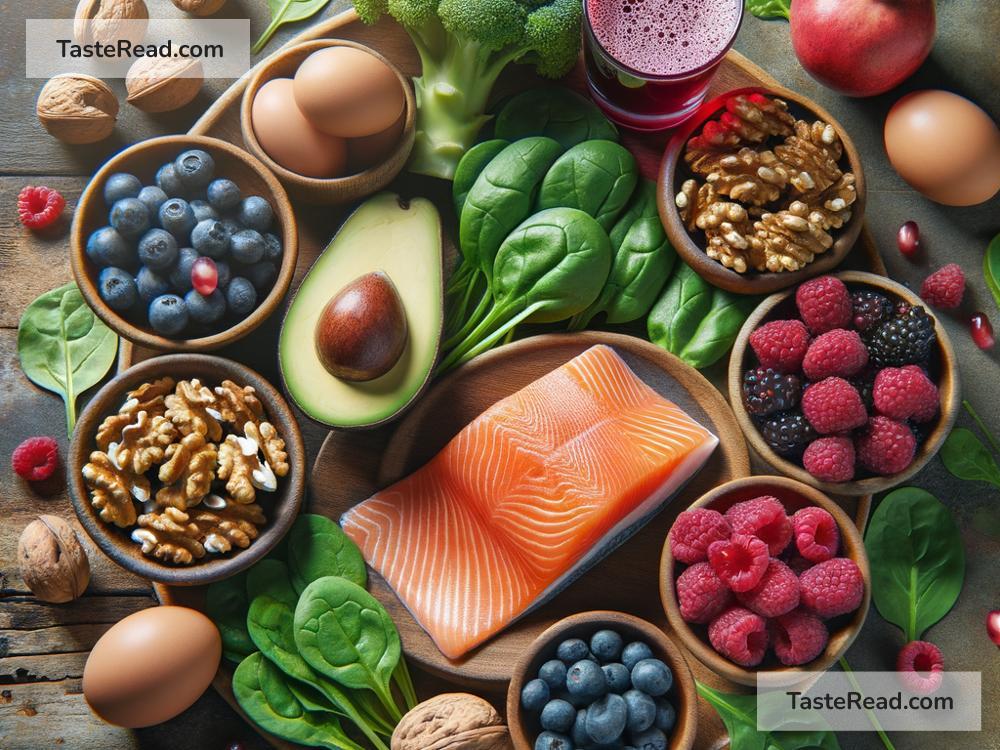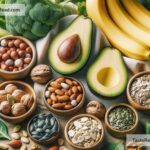Foods That Support Reproductive Health
Reproductive health is an important part of our overall well-being. Whether you’re planning to start a family, trying to balance hormones, or simply aiming to maintain a healthy lifestyle, the foods you eat play a crucial role. Eating nutritious foods can support hormone regulation, boost fertility, and improve both men’s and women’s reproductive health. In this article, we’ll explore foods that can help you take care of your reproductive system in simple and straightforward terms.
Why Does Food Matter for Reproductive Health?
The body needs proper nutrition to function well, and that includes the reproductive system. Hormones, sperm, eggs, and other parts of reproduction depend on specific vitamins and minerals. For example, zinc is important for male fertility, while folic acid plays a key role in women’s reproductive health. Eating the right foods can naturally boost your chances of staying healthy and, if desired, conceiving.
Let’s look at some foods that can support reproductive health and why they are beneficial.
1. Leafy Greens
Spinach, kale, and other leafy greens are nutrition powerhouses. They contain folate, a form of vitamin B9 that helps with cell production and supports a healthy pregnancy. Folate can also reduce the risk of birth defects in women trying to conceive. For men, leafy greens are rich in antioxidants, which help protect sperm cells from damage.
How to Eat Them:
Add leafy greens to salads, smoothies, or soups to get your daily dose.
2. Fatty Fish
Fatty fish like salmon, mackerel, and sardines are rich in omega-3 fatty acids. These healthy fats are crucial for regulating hormones and reducing inflammation in reproductive organs. Omega-3s also improve blood flow to the uterus and support egg quality in women. Men can benefit, too, as omega-3s encourage healthy sperm production and mobility.
How to Eat Them:
Grill or bake salmon for dinner, or try canned sardines for an easy addition to salads or crackers.
3. Nuts and Seeds
Nuts like almonds, walnuts, and Brazil nuts are excellent sources of vitamin E, a powerful antioxidant that boosts sperm health and improves egg quality. Seeds like flaxseeds, chia seeds, and pumpkin seeds provide zinc, selenium, and omega-3s, all of which are vital for reproductive health in both men and women.
How to Eat Them:
Snack on a handful of nuts or sprinkle seeds over yogurt, oatmeal, or salads.
4. Whole Grains
Whole grains like oats, quinoa, and brown rice are rich in fiber, which helps regulate blood sugar levels and hormone balance. Balanced hormones are essential for a healthy menstrual cycle and fertility. Whole grains also provide B vitamins, which support cell growth and energy production.
How to Eat Them:
Swap white rice and bread for brown rice and whole-grain bread, or cook some quinoa as a side dish.
5. Fruits Rich in Antioxidants
Fruits like berries, oranges, and kiwis are packed with antioxidants such as vitamin C and beta-carotene. Antioxidants protect reproductive cells from damage caused by free radicals. For men, antioxidants can improve sperm quantity, while women benefit from better egg health.
How to Eat Them:
Enjoy berries as a snack, blend them into smoothies, or top your breakfast with sliced fruit.
6. Avocados
Avocados are loaded with healthy fats, vitamin E, and potassium, all of which support reproductive health. In women, these nutrients help maintain hormone balance and improve egg quality. For men, avocados can boost sperm health and quality.
How to Eat Them:
Add avocado slices to salads, spread it on toast, or use it to make guacamole.
7. Eggs
Eggs are a fantastic source of protein, choline, and vitamin D. Choline is essential for brain development in babies, making eggs particularly important for women thinking about pregnancy. Vitamin D also plays a role in maintaining hormone levels and fertility in both men and women.
How to Eat Them:
Boil, scramble, or poach eggs for breakfast, or add them to your favorite dishes.
8. Legumes
Beans, lentils, and chickpeas are excellent sources of plant-based protein and folate. They also contain iron, which supports ovulation in women. For men, legumes provide antioxidants that protect sperm health.
How to Eat Them:
Cook lentil soup, make a chickpea salad, or add beans to your tacos for a hearty, healthy meal.
9. Dark Chocolate
Dark chocolate (at least 70% cocoa) contains antioxidants called flavonoids, which improve blood circulation and reduce inflammation. While it’s not a substitute for other nutrient-rich foods, a modest portion of dark chocolate can positively impact reproductive health.
How to Eat It:
Enjoy a small square of dark chocolate as a treat or use it to make homemade healthy desserts.
10. Water
One of the simplest yet most overlooked components of reproductive health is hydration. Drinking plenty of water helps regulate bodily functions, including hormone production. For both men and women, staying hydrated ensures that reproductive organs work efficiently.
How to Drink It:
Carry a water bottle and aim to drink at least 8 glasses a day.
Final Thoughts
Eating a variety of nutrient-rich foods is key for supporting reproductive health. These foods not only provide vitamins and minerals but also promote hormone balance, improve fertility, and protect reproductive cells. Whether you’re trying to conceive or just maintain a healthy body, these simple dietary choices can make a big difference.
By incorporating leafy greens, nuts, fatty fish, whole grains, and other foods into your daily diet, you’re giving your reproductive system the nutrients it needs to thrive. Small changes in your eating habits can lead to big improvements in long-term health. So, take care of your body, eat well, and celebrate the power of nutritious food!


